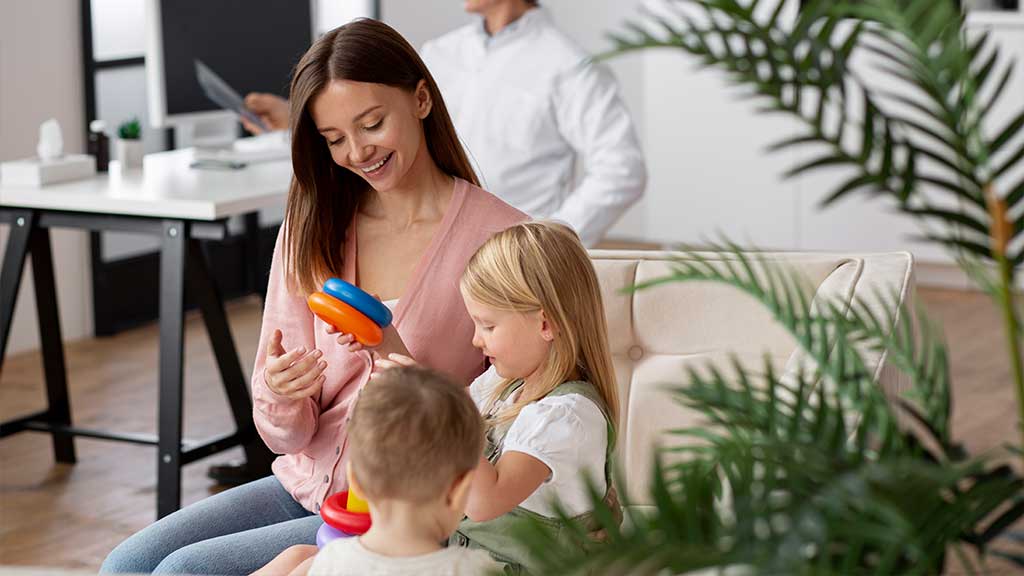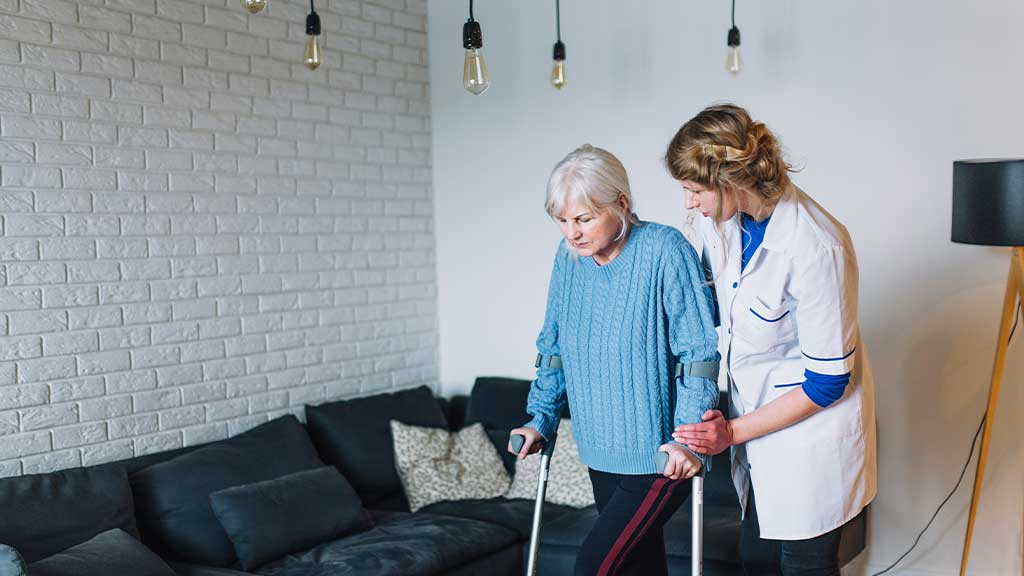You would have often heard of the term “primary caregiver”. But do you know what primary caregiving is all about? This definite guide is for individuals who want to embark on the journey to assist others as a primary caregiver. The guide covers everything about the definition of a primary caregiver, the benefits of becoming one, and the challenges they could face during the process.
Definition of a Primary Caregiver
A primary caregiver is someone who has taken up the duty of taking care of a loved one who is no longer able to care for themselves. Primary caregivers could assist children, a senior in the family, a spouse who is battling a terminal illness, or any family member or friend who needs assistance in performing day-to-day activities.
You don’t need any professional certification to become a primary caregiver. Here are some common primary caregiver examples. Adult children taking care of their aging parents, and spouses assisting their partners if one is battling a terminal illness are all examples of a primary caregiver. There are formal caregivers too who are paid to provide care either at home or in a care setting.
Legal definition of a primary caregiver
In legal terms, a primary caregiver is defined as a person who is a resident of the state, is at least 18 years of age, and has a relative who seeks assistance in critical tasks. The definition of a primary caregiver according to WHO is caregivers are those individuals who assist with another person’s health or social needs. Caregiving tasks may include help with one or more activities that are essential for daily living such as bathing, dressing, shopping, transportation, health checkups, and more. It may also involve emotional support and offering help dealing with a disability or chronic disease.
What is a primary caregiver to a child?

A primary caregiver to a child is a person who meets the physical needs of a child more than anyone else. In most cases, parents become the primary caregiver of a child. The tasks include bathing, feeding, clothing, healthcare, and other activities. In case of a medical condition, the parents of the child can work with a professional caregiver to go about with daily activities of the child.
Primary caregiver responsibilities
Primary caregivers have several duties to fulfill once they start providing care to someone in need. Being a primary caregiver could require so much work that many people prefer to hire professionals to assist them.
A primary caregiver assists with personal care, including bathing, grooming, exercising, and other day-to-day activities. They also assist with preparing meals and shopping. Offering assistance with errands, purchasing medications from the pharmacy, and assisting patients during their medical appointments are a few tasks that a primary caregiver is responsible for.
Apart from keeping up with appointments, a caregiver may also provide emotional support and monitor the health of the individual they are caring for. The duties of a caregiver may depend on the health condition of the individual. For instance, in the case of care recipients who have mobility challenges, caregivers need to drive them and help them get in and out of their wheelchairs so that they can navigate easily.
Common challenges faced by primary caregivers
Being a primary caregiver is not an easy task. it can result in numerous challenges for people serving the role. Many caregivers are often so engrossed in their role that they pay little attention to their health. This can result in self-neglect and other psychological problems like anxiety or depression. This can lead to feeling burned out.
If you are a primary caregiver for a loved one, it could result in some financial strain. You might have to cut back on the number of hours you could work, or incur high out-of-pocket costs. You could also turn away from friends and socialize less out of a sense of guilt while caring for someone dear to you. This could make you feel isolated and lonely.

You should never be afraid to ask someone else for help to share the responsibilities. Talk about your feelings with your loved one and work as a team. If it is possible, then you can seek professional assistance.
Benefits of becoming a caregiver
When it comes to caregiving, the first that comes to mind is making a difference in someone’s life. This is true in case when you are caring for a loved one, be it your aging parents or your spouse. But if you want to become a professional in the field of caregiving, then here are some of the benefits.
Finding a purpose with acts of service
Many individuals look for a profession that adds a sense of meaning to their lives. Finding purpose in your life can be difficult when you’re lost or confused. What do you want to accomplish with your time? What is your intention?
Caregiving allows you to assist others, which improves your sense of well-being. When you become a caregiver, you have the opportunity to help people in a very practical way. This aim fosters positivity in the caregiver and all parts of their life.
Gaining a sense of fulfillment and accomplishment
It’s satisfying to complete a task. It feels even better when you can help someone and witness the difference you’re making in their lives. Caregiving allows you to feel accomplished and fulfilled regularly.
Flexible schedule
One of the benefits of being a caregiver is that you may typically plan your schedule. If you’re seeking a more flexible position, this is it! Furthermore, you may easily work around other commitments, such as attending school or caring for your own family.
There are numerous types of caring opportunities available, so you may pick one that works with your schedule and lifestyle.
You’re making a difference
When you become a caregiver, you may be able to make a significant difference in someone’s life. You may help them with their daily tasks, provide friendship, and be there for them when they need it most. It’s wonderful to know that you’re making a difference in someone’s life.

These are just a handful of the countless benefits of becoming a caregiver. If you desire a meaningful and rewarding career, then you can check out local caregiver job openings.
Conclusion
It cannot be denied that the role of a primary caregiver is demanding. Caregivers play a crucial role in providing complete care to their loved ones so that they can live the best quality of life. Despite the challenges they face, they provide compassion and resilience in serving their roles.
FAQs
1. I’m a first-time caregiver. How do I manage this responsibility?
Caregiving is not easy. It is one of the most complicated roles you are ever going to play in your life. However, it will give you the satisfaction of helping someone. Make this the core of every activity you do and you will surely end up doing well.
2. I want to take care of my elderly parents but I’m not able to do so. What options do I have?
You can talk to other family members, and friends. You can also consider speaking to professional caregivers. You can assign the role to anybody willing to help. Sit with other members of your family and develop a short-term or long-term plan concerning the health of the individual in question. If you want to oversee the tasks, consider hiring a part-time primary caregiver for the elderly.
Can both parents be primary caregivers?
Yes. Both parents can be the primary caregiver for a child. However, the decision is based on who provides the most care to the child. The primary caregiver is usually a parent who takes on the majority of the duties of the child. This could be both the parents, any of the parents, a caregiver, or another relative.
How do I know if I would fit the role of a primary caregiver?
You would more likely be suitable for the position of a primary caregiver if you love being responsible, and providing care and support to a loved one or family member regularly. If you love providing care and service to others, then you should go for this role. Here are some skills that make you perfect for the role.
- Attention to detail
- Time management skills
- Strong problem-solving abilities
- Compassion for others
- Amazing interpersonal skills
- Excellent communication skills
Where can I find support and resources as a caregiver?
Several organizations offer support and assistance to primary caregivers. You can get all the information you need to serve the role. Moreover, there are online forums, social media groups, and more that provide opportunities to connect with others in similar situations for support and advice.
Do caregivers require any specific skill or knowledge?
Caregivers need to supervise patients, manage complex medical tasks, offer emotional support, provide comfort, solve problems, and coordinate care. combining these skills, caregivers administer medications, plan healthy meals, manage medical equipment, and provide direct care for the elderly and others suffering from any medical condition and in need of help.


![Self-Care for Caregivers [Tips from Experts]](https://caregivercourses.net/wp-content/uploads/2024/07/Self-Care-for-Caregivers-Tips-from-Experts-300x169.jpg)


